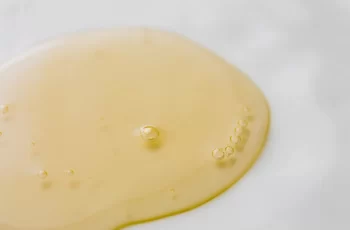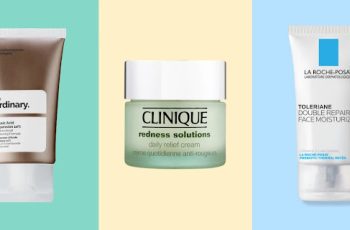
Can You Exfoliate and Use Salicylic Acid?
Salicylic acid is one of the most recognised skin ingredients, with many expressing their admiration for how it can effectively provide clarity, particularly for those prone to acne and frequent flare-ups in breakouts.
With such a potent powerhouse in your routine, we can’t help but wonder whether exfoliating the skin further will either benefit or hinder the health, look, and feel of the complexion. This is exactly what we plan to investigate in today’s blog post and with any luck, we would have answered all your questions about exfoliating and using salicylic acid.
For those of you who are left a little puzzled about what salicylic acid is and how it benefits the skin, this next part is for you, if are already glued up on all thing’s skincare, you can skip to the next part.
What is salicylic acid?
Salicylic acid, AKA, acne arched nemesis, is one of the most used members of the beta hydroxy acid (BHA) family. A dermatologist favourite for combating problematic skin, that suffers from frequent breakouts and blemishes. This acid works on the surface of the skin and sloughs away the build-up of dead skin cells. If these cells are left, you’ll find blemishes such as whiteheads and blackheads will litter your face because of excess sebum, dirt, bacteria, and debris clog the pores. You’ll also find salicylic acid is oil soluble meaning it can cut through sebum (the natural oil found in the skin). With a smaller molecular size compared to other acids, salicylic acid can penetrate the lower layers of the skin, deep into the pores.
The beauty of salicylic acid is the fact it is found in an array of formulas containing various percentages, from over-the-counter products to prescriptive. This not only makes the BHA easily found, but you can also find the best product to suit your skin. Salicylic acid is notorious for wreaking havoc on dry and sensitive skin, so for those skin types, opting for a face wash or toner formula will be the most effective as the percentage of the acid is usually lower than that found in a serum.
If you wanted to find out more about salicylic acid and its benefits, check out our dedicated blog post.
Do I need to exfoliate if I use salicylic acid?
No, not really, this is because the way salicylic acid works is as an exfoliant itself. As I have mentioned already, it is an ingredient that is readily found in all manner of skincare products, from face wash to serums. This results in the acid being used during your skincare routine daily providing regular exfoliation. If you find yourself using a product enriched in salicylic acid, as well as another exfoliating product, you could cause the skin to erupt into severe irritation and reaction.
If you are wanting to continue using your salicylic acid product as well as a physical exfoliant, such as a scrub. To benefit from these products, I would suggest alternating when you use each product. For example, using an face wash containing salicylic acid during your morning routine, followed by a physical scrub in during your evening routine.
Can I use a salicylic acid cleanser and exfoliator?
No, avoid using a salicylic acid cleanser and exfoliator as this can cause extreme irritation and dryness. As I have already said, if you are wanting to use both in your skincare routine the most effective way to do so is to alternate when you use each product.
Once you have built your skin’s tolerance to salicylic acid, you are able to use the acid twice a day in your skincare routine. This means you can use your BHA enriched products when it suits you, ensuring it’s during a routine you aren’t applying a face scrub.
For a physical face scrub, I would suggest applying it in the evening as the abrasive action can cause the skin to be left feeling temporarily sensitive. You’ll find it is able to settle and calm itself more effectively during the evening when it isn’t exposed to free radicals, such as UV rays, pollution, and other environmental aggressors. Counteract any long-term dryness and irritation by following your scrub with a serum packed with a hydrating active, such as hyaluronic acid to leave the skin moisturised and nourished.
Is salicylic acid an exfoliant?
Yes, it certainly is, just like other chemical exfoliants, such as glycolic acid, lactic acid, and malic acid for example. Salicylic acid provides exfoliation to the skin without the use of physical face scrubs, some of which often contain fragments of nut shells, pumice, and other abrasive particles.
You will also find that salicylic acid has a small molecular size that is oil soluble, this results in the acid having the ability to penetrate the lower layers of the skin. When reaching the pores, salicylic acid can provide deep exfoliation working in areas of the skin face scrubs are unable to reach.
What kind of exfoliator should I use?
There is a vast number of different exfoliators that can work on any type of skin. The following section help identify which products suit your skin type.
Oily Skin Types
Due to the excess amount of sebum that sits on the skin surface, oily skins are prone to flare-up in blemishes and can be prone to acne. This requires them to have deep exfoliation, which can be performed with either a physical exfoliant, such as a physical face scrub or cleansing device, or chemical exfoliant such as salicylic acid.
Acne Prone Skin Types
For acne prone skin it is best to opt for products containing chemical exfoliants such as salicylic acid and glycolic acid. As tempting as it may feel to scrub your skin into oblivion, this would cause havoc on your skin, as not only will this spread bacteria resulting in more breakouts, but you will strip the skin of the essential oil and water in needs for the barrier to remain healthy, hydrated, and glowing.
Dry Skin Types
To avoid unwanted irritation, dry skin types will benefit mostly from thicker, creamy textures enriched in gentle acids such as lactic acid and poly hydroxy acids. You can also benefit from physical face scrubs that are also formulated to be richer and creamier in consistency.
Combination Skin Types
Due to combination skin types having a mixture of oily and dry areas of the skin, it is suggested the best formula to use are chemical exfoliants. Physical scrubs and devices should be avoided as these can lead to increase sensitivity and irritation.
I hope that this has answered some of your questions about exfoliating and using salicylic acid. Don’t forget, you can come and find us on Instagram if you have any further questions.


